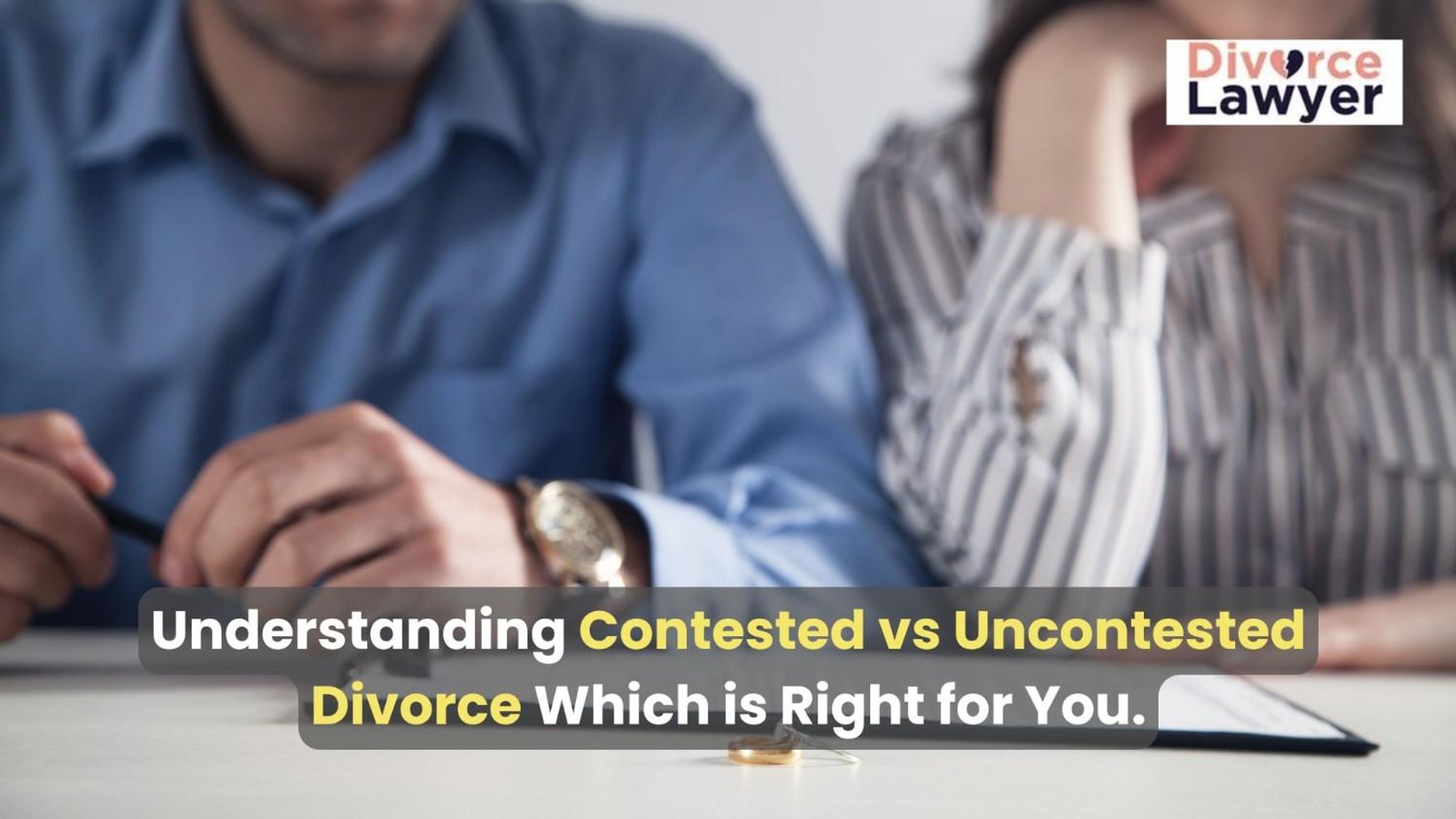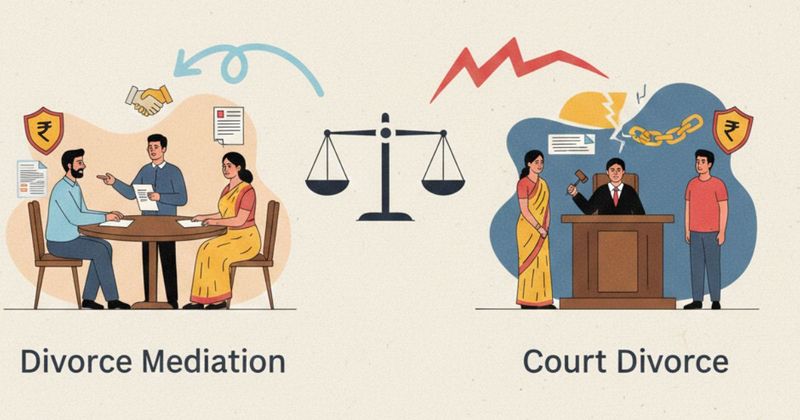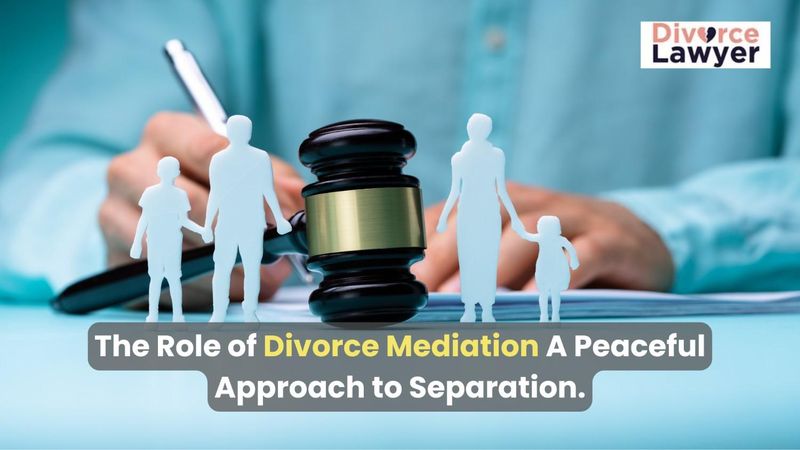Divorce is never an easy decision. However, understanding your options can make the process a little more bearable. If you’ve decided to end your marriage, the next big decision is determining what type of divorce is right for you. Typically, divorces are categorized into two types: contested and uncontested. But which one suits your situation best? Let’s break it down to help you make an informed decision.
What is a Contested Divorce?
A contested divorce occurs when the spouses cannot agree on one or more key issues in their separation. This might include disagreements over property division, child custody, alimony, or even the grounds for divorce itself. Because of these unresolved matters, contested divorces usually involve court intervention to settle disputes.
Common Reasons for Contested Divorce
Some common reasons for a contested divorce include:
- Disagreements over asset division
- Different views on child custody or visitation rights
- Disputes regarding spousal support
- Emotional factors such as resentment or betrayal, which complicate negotiations
What is an Uncontested Divorce?
An uncontested divorce, on the other hand, happens when both spouses are in agreement on all major issues, including division of property, child custody, and support payments. Essentially, there’s nothing to fight about, so the couple can proceed with the divorce relatively smoothly.
Why Couples Choose Uncontested Divorce
Couples often opt for an uncontested divorce because it’s faster, less expensive, and less emotionally draining. In many cases, both parties just want to move on with their lives without the added drama of courtroom battles.
Key Differences Between Contested and Uncontested Divorce
Legal Complexities
A contested divorce involves more legal complexity, as the couple relies on a judge to make decisions for them. In contrast, an uncontested divorce can often be settled with minimal legal intervention, provided both parties stick to the agreement.
Time and Cost Factors
Contested divorces can drag on for months, sometimes even years, leading to higher legal fees and court costs. Uncontested divorces, however, are typically resolved much quicker and with fewer expenses.
Emotional Toll
The emotional strain of a contested divorce can be intense due to prolonged conflict, courtroom appearances, and ongoing negotiations. Uncontested divorces tend to be less emotionally draining, as both parties work together to reach an amicable solution.
Pros and Cons of Contested Divorce
Advantages of Contested Divorce:
- It allows both parties to present their case in court.
- A judge can make a fair decision when spouses cannot agree.
- Complex issues like custody or large assets are addressed in detail.
Disadvantages of Contested Divorce:
- Time-consuming and expensive
- Causes emotional and psychological stress
- Often involves public court appearances
Pros and Cons of Uncontested Divorce
Advantages of Uncontested Divorce:
- Faster and more cost-effective
- Less emotionally stressful
- Private negotiations with little to no court involvement
Disadvantages of Uncontested Divorce:
- May not be feasible if one spouse is hiding assets
- Agreements reached without legal guidance can sometimes be unfair to one party
- Less room to negotiate complicated issues
How to Decide Which Type of Divorce is Right for You
Assessing the Relationship
Ask yourself: Can we sit down and work through our differences amicably? If the answer is yes, an uncontested divorce might be the better option.
Financial Considerations
Consider your finances. Contested divorces can become costly due to legal fees, court appearances, and time spent negotiating. An uncontested divorce might be more financially manageable.
Impact on Children
When children are involved, emotions run high. Contested divorces can strain relationships with kids due to drawn-out custody battles. In contrast, an uncontested divorce may reduce the emotional toll on children by avoiding hostile confrontations.
Legal Process for Contested Divorce
Filing the Petition
A contested divorce begins when one spouse files a petition in court. This formal request sets the legal process in motion.
Court Hearings and Negotiations
The divorce then proceeds with multiple court hearings where both sides present their arguments. This can involve lawyers, mediators, and judges.
Final Judgment
After all the disputes are settled, the judge issues a final judgment, legally dissolving the marriage.
Legal Process for Uncontested Divorce
Filing the Paperwork
In an uncontested divorce, the couple files paperwork outlining their agreements on all major issues. This is submitted to the court for approval.
Reaching an Agreement
Because both parties are already in agreement, this step is often the easiest, requiring minimal negotiation.
Finalizing the Divorce
Once the court approves the agreement, the divorce is finalized, and the couple moves on with their lives.
Costs Involved in Contested vs. Uncontested Divorce
Lawyer Fees: Contested divorces usually involve high lawyer fees due to the extensive legal work required. Uncontested divorces are much cheaper since they involve less lawyer involvement.
Court Fees: Court fees for contested divorces can skyrocket depending on the length and complexity of the case. Uncontested divorces typically involve just filing fees.
Hidden Costs: While uncontested divorces may seem cheaper, hidden costs can arise if the agreement doesn’t account for future financial or custodial issues.
Emotional Impact of Divorce: Contested vs. Uncontested
Stress and Anxiety in Contested Divorces
The drawn-out nature of a contested divorce can cause immense stress, anxiety, and emotional exhaustion.
Emotional Relief in Uncontested Divorces
An uncontested divorce offers more emotional relief, allowing both parties to move on without the constant burden of conflict.
Custody and Property Division: Contested vs. Uncontested Divorce
How Contested Divorce Affects Custody and Property Division
In a contested divorce, custody and property division are typically decided by the court, which can be time-consuming and stressful for both parents and children.
How Uncontested Divorce Handles These Issues
In an uncontested divorce, the couple agrees on these matters ahead of time, allowing for a smoother process.
How Mediation Can Help in Both Types of Divorce
Role of Mediation in Contested Divorce
Mediation can help resolve some issues in contested divorces, reducing the time and money spent in court.
Role of Mediation in Uncontested Divorce
For uncontested divorces, mediation can help the couple reach an agreement quickly and amicably.
Conclusion
Deciding between a contested and uncontested divorce is a significant step in the journey of ending a marriage. Each option has its own pros and cons, and the best choice often depends on the unique circumstances of your relationship. If you and your spouse can communicate effectively and reach agreements on essential issues like child custody and property division, an uncontested divorce might save you time, money, and emotional stress.
However, if there are deep-seated disagreements or unresolved issues, a contested divorce may be necessary to ensure a fair resolution, albeit with potential legal complications and higher costs. Ultimately, it’s crucial to assess your situation carefully, considering factors like your relationship dynamics, financial implications, and the impact on any children involved. Seeking guidance from legal professionals can also provide clarity and support throughout this challenging process.




